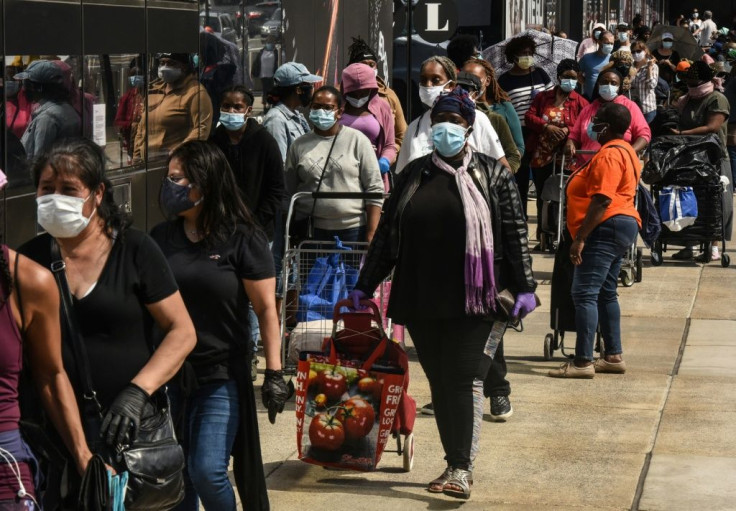What Expiration Of The $600 Emergency Unemployment Benefit Will Mean To Jobless, Economy

KEY POINTS
- Initial unemployment claims exceeded 1 million for the 17th straight week last week
- Pandemic unemployment compensation expires July 31, which means the last week for which it can be claimed is the week of July 19
- The expiration of the $600 per week supplement will pull $15 billion from the economy
Millions of Americans still unemployed because of the coronavirus pandemic will see their benefits cut by $600 a week when the emergency measure expires at the end of July, hurting not only already-struggling households but also the nation's economy.
Congress reached a bipartisan deal in March for the CARES Act, but set a July 31 expiration date. The extra cash, however, effective ends the week ending July 25. In a handful of states, unemployment insurance benefits will plummet as much as 85%.
For the nation's economy, the fallout from end of the $600 checks will be costly, too.
Andrew Stettner, an unemployment insurance expert who is a senior fellow at the Century Foundation, told International Business Times that more than $15 billion a week in consumer spending will dry up.
Initial unemployment claims totaled 1.3 million for the week ending July 11, the 17th straight week initial claims topped 1 million.
Both the White House and Senate Republicans, though, have expressed reluctance in extending the benefits without changes. In June, the Treasury laid out more than $100 billion in unemployment benefits – a record – contributing to an $864 billion deficit for the month.
In early July, Senate Majority Leader Mitch McConnell recognized the pandemic is far from over and conceded lawmakers will need to take further action to keep the economy afloat.
Still, a survey by Money Done Right shows only about half of Americans think the $600 supplemental benefit should be extended, with a little more than half arguing the checks would increase unemployment. About a third called the benefit very unfair, and fewer than half said the supplemental benefit helps the economy.
A paper published by the National Bureau of Economic Research shows the supplemental benefit provides two-thirds of those eligible with more money than they were earning.
At the same time, data from Indeed show job postings through last week were off 23.3% from last year, making the prospect of finding work less likely.
“After an encouraging initial start to the recovery, the dramatic reemergence of COVID-19 risks is putting the economy back on its heels,” Mark Hamrick, senior economic analyst for Bankrate.com, told IBT. “With the paramount aim of saving lives, renewed restrictions placed on businesses also take a renewed toll on the economy. Ultimately, the only treatment for what ails the economy is also what’s needed to overcome the virus.”
And the jobs market could get even worse.
Edward Altman, a business professor emeritus at New York University, predicted a wave of large business bankruptcies in the near future, Bloomberg reported.
© Copyright IBTimes 2025. All rights reserved.






















